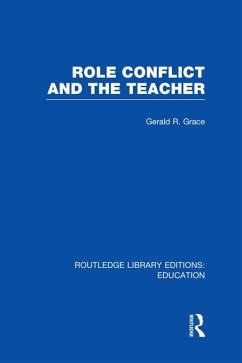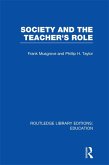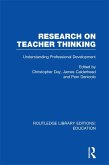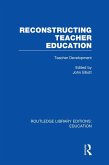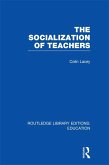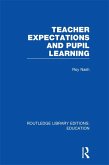Gerald Grace here explores the concept of role conflict and the current theorizing about the problems of the teacher's role. He investigates four potential problem areas - role diffuseness, role vulnerability, role commitment versus career orientation, and value conflict - in a sample of one hundred and fifty secondary school teachers in a Midland town.The analysis shows how a teacher's commitment to a particular set of values exposes him or her to conflict in an achievement-oriented and pluralistic society. These conflicts, present in all schools, are seen in their clearest form among secondary modern school teachers. The author suggests that colleges of education, in emphasizing commitment and in assuming value consensus, predispose their students to conflict experiences. He indicates that internal career possibilities in schools and the influence of graduate or certified status are also important factors in conflict exposure. While accepting that certain role conflicts are important in the genesis of change, the author proposes that levels of dysfunctional conflict can be reduced by the action of head teachers, by structural change in the schools and innovations in teaching education.
Dieser Download kann aus rechtlichen Gründen nur mit Rechnungsadresse in A, B, BG, CY, CZ, D, DK, EW, E, FIN, F, GR, HR, H, IRL, I, LT, L, LR, M, NL, PL, P, R, S, SLO, SK ausgeliefert werden.

